Text
"Don't use Libby because it costs libraries too much, pirate instead" is such a weird, anti-patron, anti-author take that somehow manages to also be anti-library, in my professional librarian-ass opinion.
It's well documented that pirating books negatively affects authors directly* in a way that pirating movies or TV shows doesn't affect actors or writers, so I will likely always be anti-book piracy unless there's absolutely, positively no other option (i.e. the book simply doesn't exist outside of online archives at all, or in a particular language).
Also, yeah, Libby and Hoopla licenses are really expensive, but libraries buy them SO THAT PATRONS CAN USE THEM. If you're gonna be pissed at anybody about this shitty state of affairs, be pissed at publishing companies and continue to use Libby or Hoopla at your library so we can continue to justify having it to our funding bodies.
One of the best ways to support your library having services you like is to USE THOSE SERVICES. Yes, even if they are expensive.
*Yes, this is a blog post, but it's a blog post filled with links to news articles. If you can click one link, you can click another.
41K notes
·
View notes
Text
Baseball as a Cure for the News
I’ve loved journalism since I was a kid. Lois Lane, April O’Neil and Tintin were hugely important characters to me as a child, and as I got older, that admiration extended to Danny Concannon, Will McAvoy, and of course Jane Craig. It was only natural, then, that I would become interested in real world news, too. Unfortunately, with… you know… everything being terrible, the news became less thrilling and more burdensome. I needed something to scratch the itch of keeping up with the news every day, without the soul-crushing bleakness of the world ruining my day before I even got out of bed in the morning.
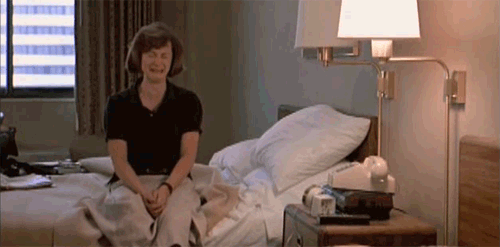
Enter baseball.
Now, I should clarify a few things here:
I’m a queer, diminutive Jew, who has always hated sports and was bullied for being bad at the ones I was forced by my parents to play.
I am, unfortunately, British.
My only previous exposure to baseball has been through movies – my main passion.
In Moneyball, one of the most immensely rewatchable films ever made, Brad Pitt’s Billy Beane says, “it’s hard not to be romantic about Baseball”, and while I don’t know if there’s anything intrinsic to the game itself which conjures that romantic feeling, decades of American film and TV certainly agree with the sentiment.
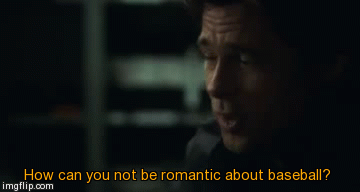
Aaron Sorkin and Rob Reiner in particular conjure this feeling of baseball romanticism in their work. Whether it’s in the introduction of Tom Cruise as Lt. Daniel Kaffee in A Few Good Men or Billy Crystal and Bruno Kirby gabbing about relationship woes in When Harry Met Sally, baseball (or, more specifically, the act of repeatedly whacking a ball with a bat) is depicted with a warm, autumnal glow that never fails to draw me in.
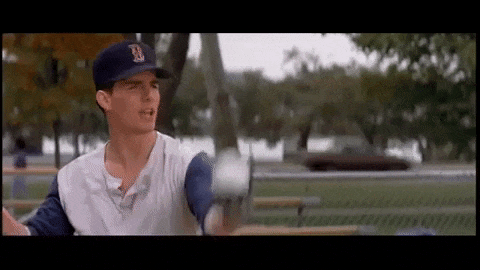
The aforementioned Moneyball (Sorkin again), however, is the movie that sparked my interest in baseball as a sport rather than just an aesthetic. I didn’t realise just how many games get played in a season, or how reliant the sport is on granular elements and statistics. Add into the mix the regularity of lineup changes, and the fact that players aren’t necessarily expected to be peak physical specimens (I do enjoy watching a slightly pudgy player at the batting plate), and the game revealed itself to me as the perfect sport for a news junkie, homebody dork like me.
There’s another key factor at play here. The non-Britishness of baseball is hugely appealing to me. British sport culture is, to put it mildly, absolutely rancid. Football has the bald, gammon-white, beer guzzling knobheads, and cricket and rugby have the posh twats. As someone an ocean away from the games taking place and the bulk of the fanbase, I have the privilege of being able to pick and choose whether or not and in what ways I want to engage with the fan culture. If they, too, are rancid, I can be blissfully ignorant.
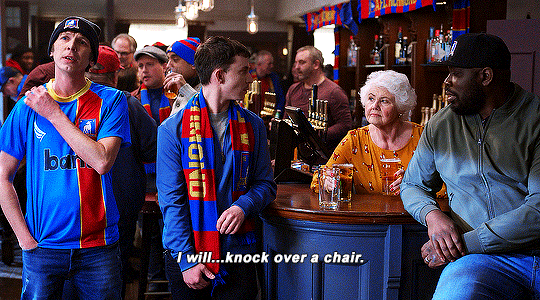
So now I, at the age of 26, am following a sport for the first time in my life. Why? Because it’s news I can look at in the morning with drama, highs and lows, and nerdy little details that doesn’t carry literal life and death stakes. Don’t get me wrong, I’m still trying to stay informed about what’s going on in the world (things are too dire to morally condone obliviousness), but my mental health can’t withstand the perpetual onslaught of terrible news, so I’m funnelling my obsessive tendencies into something with significantly smaller consequences.
I’ve chosen to follow the New York Mets, as they’re the closest thing I have to a family team. My American cousins are Mets fans, and I already have a Mets t-shirt which they gifted to me on one of their visits. New York is the only American city I’ve visited (I spent a month there conducting research for a PhD from which I would ultimately step away), and it really is the centre of diaspora Jewish culture. I genuinely felt at home there, so keeping up with the Mets is a small way of keeping up with the city.
I’ve been staying up to date with games and learning what I can about the mechanics and the stats for about a week now, and I really do agree, it’s hard not to be romantic about baseball. Best of all, though, it’s proper bread and circuses stuff – keeping me sane and distracted while the world burns around me.
#marxonculture#movies#cinema#moneyball#a few good men#when harry met sally#broadcast news#baseball#major league baseball#new york mets#mets
7 notes
·
View notes
Text
Personhood and Genre Fiction | My 2024 Reading Journey So Far
I’ve been working as a Library Assistant for six months now, and boy has it been a massive jolt to my love of reading. It’s hard not to be excited about digging into a book when you’re surrounded by them all day, and I credit that feeling with being responsible for my reading more books for pleasure in the first four months of 2024 than I have in the previous seven years combined. As I reach a modest milestone in my reading for the year, I wanted to reflect on what I’ve observed to be a common theme among the books that have most captured my imagination since January. With the world having been in a particularly fraught state over the last few years, and an increasingly prevalent trend of groups of people being actively dehumanised by those with power and influence, it’s been quite an emotional experience for me to discover that the books which have most captured my imagination this year have been about personhood and what defines it.
Piranesi by Susanna Clarke (2020)
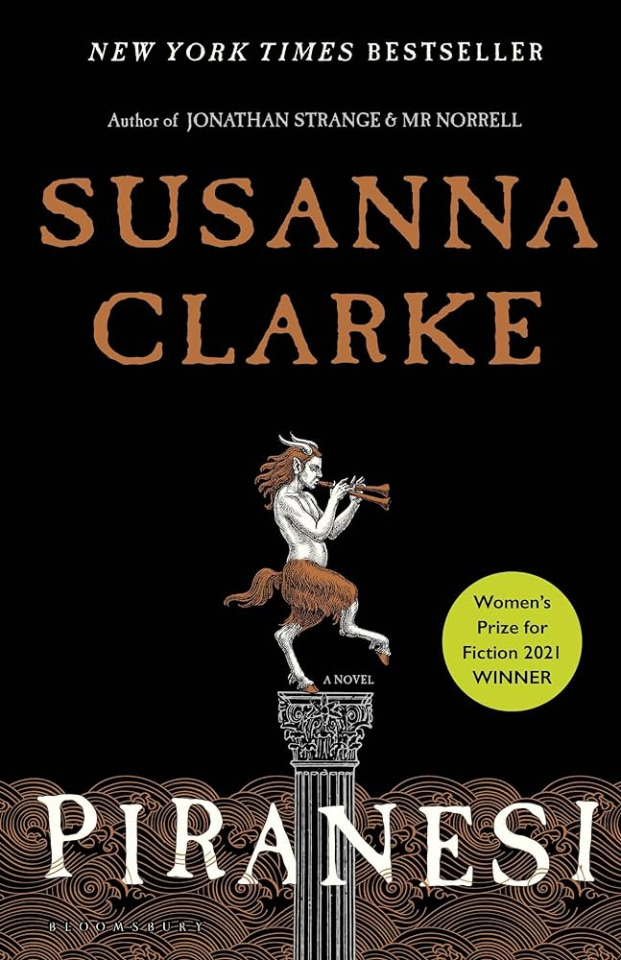
The first book I finished this year is one that I think about every day. Susanna Clarke’s Piranesi is a wonderful little novel about who we are at different times, and crucially different places, in our lives. It explores personhood through the lens of fundamental internal change; when we go through seismic changes, do we become different people or are we fundamentally the same?
Clarke uses magical realism and a meticulously well-designed alternate reality/dream world as a means of exploring the evolution of one’s own personhood, as well as an adoration of design, architecture, and place. Piranesi was invigorating for me as a reassurance that it’s okay to redefine oneself at different points in life, and that just because you’re a different person now, that doesn’t mean that the old you ceases to exist.
Feet of Clay by Terry Pratchett (1996)
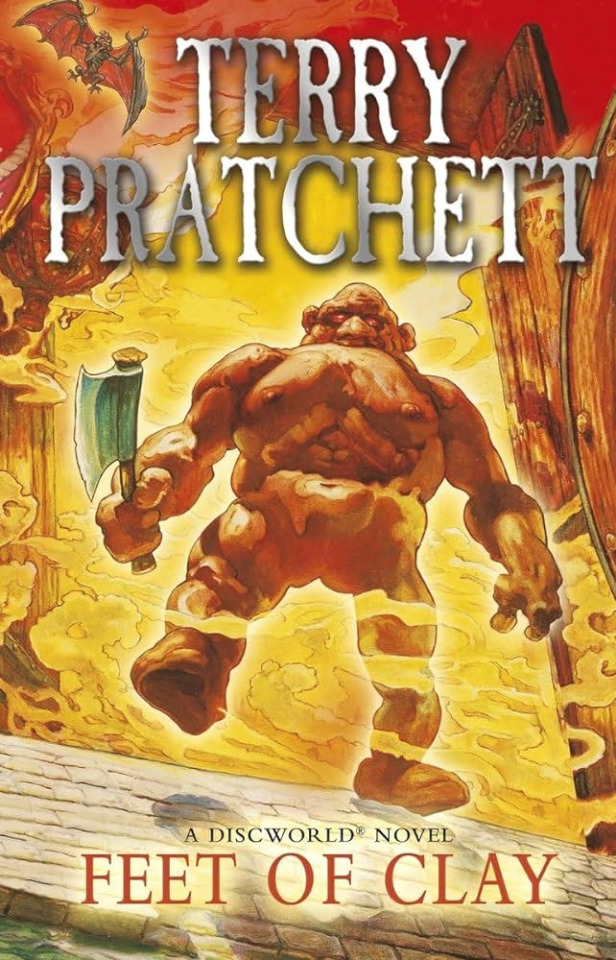
Terry Pratchett is so well known for being a satirist, that it’s east to forget how sincere and moving his work can be. After putting it off for many years, I finally started reading the Discworld books this year, and have been enjoying them immensely, and while I had a great time with the first two books in the City Watch sub-series, it wasn’t until the third entry that one of them really hit me, emotionally.
Feet of Clay is about golems (גּוֹלֶם). For those unfamiliar with Jewish folklore, golems are anthropomorphic clay constructs ordered to obey the commands of their master and animated via the inscription of the Hebrew word for truth on its head. Pratchett’s golems are slightly different in that they are brought to life by placing governing words inside their heads. Pratchett uses this to remarkable effect to build a story of self-ownership and self-determination. It was especially moving to me to see Jewishness used in this way – as something empowering rather than grotesque, which is a real rarity in Western fantasy writing.
A Closed and Common Orbit by Becky Chambers (2016)
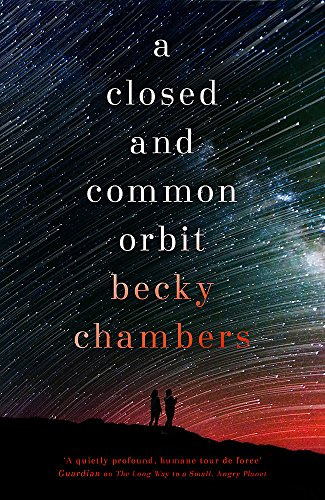
The last book I wanted to talk about here was this second entry in Becky Chambers’ beautifully humane, space opera anthology, The Wayfarers series. A Closed and Common Orbit centres on two protagonists, one an AI learning to adapt to a life passing as a human in an illegal ‘body kit’, and the other a clone, bred for factory work, trying to help the AI make a life for herself.
As with her first book, The Long Way to a Small Angry Planet, what characterises Chambers’ writing is her deep love for her characters, and the way that love manifests itself in this book is nothing short of miraculous. Sidra and Pepper’s parallel journeys are not merely about convincing others of their personhood, but rather convincing themselves. A Closed and Common Orbit is about finding a way of living where you feel most like yourself, learning to feel that you deserve for your needs to be met, and accepting that your loved ones see you as a person, even in times when you don’t.
All of these books have meant a great deal to me during a time where I have had to completely re-evaluate the ways in which I see myself. Genre fiction is not necessarily where I expected to find this feeling of personhood and recognition, but it’s especially exciting to have done so. There’s nothing quite like finding deep meaning in something you have engaged with purely for entertainment, and I hope to continue to do so as the year goes on.
#blusforjews#books#booklr#becky chambers#the long way to a small angry planet#wayfarer#nonbinary#getting back into reading#a closed and common orbit#terry pratchett#discworld#feet of clay#ankh morpork city watch#susanna clarke#piranesi#magical realism#fantasy#scifi#space opera#jewishness#jewish
7 notes
·
View notes
Text
On Epic Fantasy, Gender, Changes in Belief and Samantha Shannon’s The Priory of the Orange Tree
Ordinarily I don't write about books here, but I had something I wanted to get out about what I've been reading lately, so here goes...

I’ve always maintained that high fantasy is something in which I have very little interest. While friends and family have raved about Lord of the Rings and Game of Thrones over the years, I’ve felt a great disconnect from those stories and worlds, and I always assumed that it was the genre itself at the root of the problem. Meanwhile, I was raving separately about the immense creative achievement of The Matrix (all of them, not just the original film), which is (if I’m being honest with myself) high fantasy wearing the skin of science fiction. Chosen one narratives, prophecy, fantastical creatures, magic systems, and a great battle to determine the fate of humanity are the makeup of The Matrix, just as they would be any other work of high fantasy.
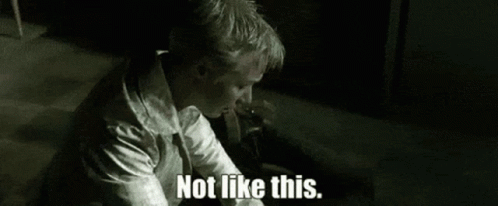
I learned the hard way during my undergraduate degree and subsequent three years as a post-graduate student that reading for pleasure can very easily fall by the wayside when you have to read so much for work – the act of reading itself becomes a massive chore. So, when I left academia and started getting back into reading for pleasure in a habitual way, part of the journey for me was discovering my taste in literature as an adult, which meant giving fantasy another try.
The discoveries I’ve made since getting back on the horse have been a mixed bag – some expected and some very much unexpected. Among those realisations was the fact that fantasy as a genre is not as immediately repulsive to me as I thought; what is repulsive to me, on vibes alone, is fantasy written by men. It turns out that my lifelong struggle with masculinity (I’ve only recently begun coming out to myself and others as non-binary - I use he/they pronouns) applies to literature, too. Surprise, surprise, The Matrix’s exploration of gender identity and transness was more relatable to me than the aggressive hyper-masculinity of Game of Thrones and to a lesser extent Lord of the Rings (yes I know the consensus is that LotR is very gay, but it’s also very male). So, while in search of something to read on my local library’s eBook lending service, I decided to give Samantha Shannon’s epic fantasy novel, The Priory of the Orange Tree, a shot, and I’m so very glad that I did.
TPotOT has been misleadingly described by some as ‘feminist Game of Thrones’. And, while I can see where those people are coming from, this work feels like its own entirely distinct thing. Rather than plunging into the darkest, grimmest depths of humanity’s worst moral failings, as George R.R. Martin does almost fetishistically, Shannon uses her beautifully engrossing fantasy world to explore the necessity of trust and cooperation with those whom one’s belief system might deem unacceptable, in order to confront something that threatens everybody. This is less an allegory for climate change, and more an allegory about dogma.
The world of this Roots of Chaos series is built upon a series of conflicting, yet paradoxically overlapping, paper-thin religious belief systems. These systems hold the societies of Shannon’s four, wonderfully drawn POV characters together, and what makes the narrative of this gargantuan book so captivating, is the necessity of these characters coming to terms with the elements of their belief systems that have been falsely constructed in order to serve an agenda. This isn’t a didactic story about one morality system being superior to another, but rather one of learning to find common ground with those who believe differently to you, accepting truths when you are confronted with them, and having enough faith in humanity to trust that society won’t collapse as a result.
The Priory of the Orange Tree isn’t the only book in this series (Shannon has since published a prequel entitled A Day of Fallen Night), but it does function as a standalone story with a definitive ending. That being said, Shannon smartly chooses to end her story at the conclusion of its central conflict – the battle with a terrifying, all-powerful dragon called The Nameless One – rather than spending extra time exploring the aftermath. We don’t know whether the colossal revelations poised to shatter this world’s religions will lead to societal collapse, or whether the characters’ faith in humanity is justified. Anyone who knows me is aware of how I feel about certainty in narrative storytelling. Asking questions is much more interesting than answering them.
Ultimately, The Priory of the Orange Tree is a story that leads (and ends) with its characters. The book is deeply concerned with the repercussions of its plot on its intricately detailed world, but it is more focused on the way these characters grow and change when confronted with undeniable truths. Eadaz uq-Nāra is up there with my very favourite protagonists, and her journey and relationships are rapturously entertaining and moving. Shannon clearly adores her characters, which makes it so very easy for us as readers to fall in love with them, too.
I’m so glad to have found this book. TPotOT, along with Becky Chambers’ miraculous space opera, The Long Way to a Small Angry Planet, have been genuine reassurances to me as I come to terms with who I am as an adult, both in my tastes as a reader, and more fundamentally in myself and my identity. In short: genre fiction written by queer women is good for you.
#blusforjews#books#booklr#epic fantasy#high fantasy#samantha shannon#the priory of the orange tree#tpotot#becky chambers#the long way to a small angry planet#wayfarer#the roots of chaos#nonbinary#getting back into reading
6 notes
·
View notes
Text
A Quick Note on 'Jewface', Maestro and Oppenheimer
Given that my presence on this platform is filtered specifically through the lens of Jewishness in film, and that I wrote my undergraduate dissertation on the Jewish identity of Leonard Bernstein – the subject of Bradley Cooper’s controversial upcoming film, Maestro – I thought I’d weigh in on the current discourse.
For those who are unaware, one of the biggest films due to premier as part of this year’s autumn film festival season is Bradley Cooper’s Maestro. The film is said to be a non-traditional biopic of 20th century American composer Leonard Bernstein, focusing largely on his complex relationship with his wife, Felicia Montealegre. Controversy has arisen around the Netflix production due to images from the trailer featuring Bradley Cooper as Bernstein wearing an enlarged prosthetic nose. Voices within and outside Jewish communities have loudly criticised Cooper for caricaturing Jewishness, using the term ‘Jewface’ which describes the act of a goyische (non-Jewish) actor using prosthetics to make themselves look more like a cartoonish, imagined Jew.
While it is true that Bernstein did own a decent sized schnoz, the prosthetic utilised by Cooper is significantly bigger, and more defined than the nose was in reality. From a personal standpoint, I do find the use of this prosthetic to be pretty discomforting, but I think it speaks more to Cooper’s insecurity about the size of his own nose, which is a lot bigger than perhaps he would like to admit (and not too dissimilar to Bernstein’s actual nose!), than it does about his perception of Jews. That being said whether it was his intention to cartoonify Jewishness or not, Cooper has ruffled feathers in a way that is crass rather than substantive. Bernstein’s living relatives have come out in support of Cooper and his decision to use the prosthetic, saying that Bernstein would not have minded, but I think their statement rather misses the point. The nose is not about Bernstein himself, but about highly visible representations of a tiny minority that are stereotypical and incredibly reductive.
Funnily enough, however, Cooper’s use of ‘Jewface’ is the element of Maestro that bothers me the least. I have been fairly vocal since the film’s announcement about how I believe the production as a whole to be a pretty catastrophically bad idea. Leonard Bernstein is my number one creative hero – as a composer, public intellectual and educator, I don’t think there has been a single Jewish figure in American history who has had more of a positive impact on culture.
As I mentioned, I have written extensively about Bernstein in an academic context, and in researching him, it became clear to me just how vitally important his Jewish identity was to him throughout his life. It informed his music (even West Side Story, which was initially conceived as a story about Jews and Catholics on the Lower East Side of Manhattan), and his role as an educator (he often described his pedagogy as rabbinic in nature), and he was deeply, foundationally affected upon learning about the realities of the Holocaust which caused what he described as ‘aporia’, a state of being where he was too overwhelmed to write a single word for years. Bernstein’s complicated relationship to sexuality was also hugely significant in his life. There is still debate to this day about whether, given an open, accepting environment, he would have identified as a gay man or as bisexual. He had significant, passionate relationships with both men and women, and was an early major advocate for HIV/AIDS research.
My problem with Maestro is that I don’t have faith in Bradley Cooper as a writer/director, to sensitively depict these two massive aspects of Bernstein’s identity. Focusing on his most significant straight-passing relationship as the centre of a film called Maestro does not inspire confidence that the film won’t totally whitewash Bernstein’s Jewishness, or reduce his sexuality to the pain it caused his wife (in a similar way to other reductive music biopics like Bohemian Rhapsody or Rocketman). Cooper’s own identity is significant in that he is starting from a place of remove from the identity of his subject, which isn’t necessarily a dealbreaker, but when there are other filmmakers out there who are far better suited to a project like this, both from an identity perspective and a thematic one, it’s hard to justify why this project exists at all in its current form.
Some have pointed to the involvement of Steven Spielberg as a producer on the project as hope for better representation, but given that Cooper and Martin Scorsese – a filmmaker who I have criticised in the past for the didactic, Christian morality of his movies – are also credited producers, I don’t think it’ll make much difference. I’m more comforted by the involvement of Josh Singer (Spotlight, The Post) and his contribution to the screenplay, given his Jewishness and his work on thematically sensitive historical films.
I’m not writing off the film entirely just yet. I had similar worries about Oppenheimer, given the significance of the scientist’s Jewishness in his decision to start work on the bomb in the first place. Nolan and Cillian Murphy, thankfully, proved me wrong in the director’s decision to focus on the differing Jewish identities of Oppenheimer, Lewis Strauss, and I.I. Rabi, and the nuanced ways in which their characters were informed by Jewishness, as well as Murphy’s attention to detail in his performance. It’s certainly possible for non-Jewish filmmakers to consider Jewishness in a valuable way (see Todd Field’s Tar or Paul Thomas Anderson’s Licorice Pizza for a couple of recent examples), but the set-up of this project makes it hard for me to believe that Cooper is one such filmmaker.
To end with a little self-gratifying what-if, I thought I’d lay out what would be my ideal Bernstein biopic: a film centred around the relationship between Bernstein and his fellow queer, Jewish composer and mentor, Aaron Copland, the letters they wrote to one another, and the fallout of their brushes with McCarthyism which had vastly different outcomes. I would keep Cooper as Bernstein (without the prosthetics!) because he can convincingly play the man’s charm, I’d cast Michael Stuhlbarg as Copland, and get Todd Haynes to write and direct. Haynes is Jewish, gay, and has a great deal of experience directing sweeping, romantic, dark, and political films. He knows how to portray music on screen and has several masterful period-pieces under his belt, with Carol in particular as a shining example of complex, historical queer romance in America. Honestly, this would be my dream film project.
#blu ray#blu ray collector#blusforjews#cinema#cinephile#film#film tumblr#jewishness#jewishness in film#maestro#leonard bernstein#bradley cooper#jewface#antisemitism#oppenheimer#christopher nolan#todd haynes#michael stuhlbarg#aaron copland#biopic#music biopic#queerness#queer history#gay#bisexuality#lgbt representation
52 notes
·
View notes
Note
I was going thru the spotlight tag and I found ur post and ur not alone! Spotlight is my all time favorite comfort movie I've seen it 10+ times probably lol. Idk why! (Besides that it's good)
It's got an odd magic to it! I'm not sure I'll ever get to the bottom of it
0 notes
Text
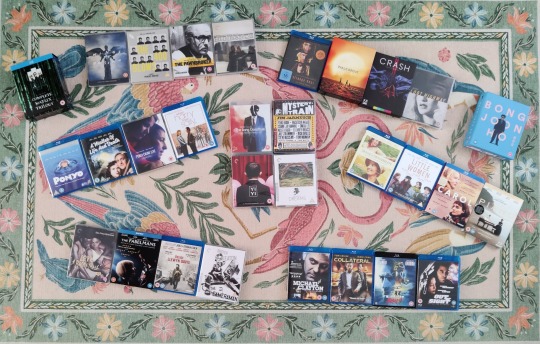
I tried to summarise my taste in film on a rug
0 notes
Text
Spotlight: My Weirdest Comfort Film
As of a few days ago, Tom McCarthy's best picture winning film, Spotlight (2015), became my most-watched film on Letterboxd. On its surface, the investigative journalism drama is a dour story based on the real investigation which exposed the horrific, systemic paedophilia within the Catholic church. This shouldn't be such a comforting watch, given its subject matter, so here I intend to determine what it is about this movie that keeps reeling me back in... or maybe there's just something wrong with me.
Let's start with the elephant in the room: am I just really odd? Honestly, probably, but I don't think that's why I keep coming back to Spotlight. While the film is mindful of the crimes being investigated, and particularly sensitive and alert to the pain and extreme trauma experienced by the victims, it's primary focus isn't on the scandal itself - it's very necessarily not torture porn. If I wanted to torture myself via repeated exposure to the pain of others, this wouldn't be the film to achieve that.
Instead, the focus of Spotlight is on the process of uncovering the Chruch's crimes, and the systemic issues that kept such an open secret covered up for so long. In other words, this is a film about people who are really good at their jobs, deconstructing all the ways the church in environments like Boston has its claws in every major institution, including the press.
For a long time, I wanted to be an investigative journalist. The idealism that drives exposing difficult truths in order to ensure that the electorate be informed, is an incredibly compelling reason for pursuing a career. Now that I'm older and I know that the demands of such a profession are not for me, my love of proper, idealistic journalism is channelled into films about the people who can hack it. Think Broadcast News, The Post, The Insider, Goodnight and Good Luck, and Zodiac; I'm even one of those sickos who loved The Newsroom.

I really do believe in the power and responsibility of the so-called Fourth Estate. So, one of the most compelling things about Spotlight is that it is a true story - a period piece even - about a time when the press served their intended function properly and really made a difference. A story about that kind of thing set today would almost feel like science fiction.
Tom McCarthy's filmmaking, which some have dismissed as bland or overly procedural, is genuinely inspired because of the reality it is showing. The aesthetic and tone of Spotlight is intentionally mundane and perfunctory, portraying a job that needs to be done well, but not one that needs glorifying or mythologising. The one member of the Spotlight team (Mark Ruffalo's Mike Rezendes) who is more theatrical and performative is chastised by his colleagues for his over-the-topness - it's very telling that he is the one who ends up writing the article.
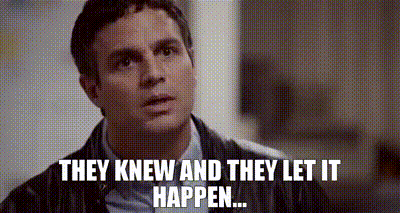
I am especially drawn to the ostensible B-plot of the film: Liev Schreiber's Marty Baron stepping in as the new editor of the Boston Globe and having to contend with the extent of the Catholic church's influence on Boston life. Baron is Jewish, and immediately identified as an outsider in the majority Catholic city. His performance is, in my view, miraculous in the way it so accurately communicates the ways in which Jews in majority Christian environments have to restrain our frustration with a cultural majority that so consistently dehumanises and others us.

One scene in particular is often reason enough for me to revisit Spotlight. It involves Baron being called in for a meeting with Cardinal Law (the most senior figure at the time in the Boston archdiocese). Schreiber deftly communicates Baron's skillfully maintained composure and professionalism despite his clear discomfort at Law's blatant attempts to both bring him under the church's sketchy umbrella of influence and prostelytise at him. It is a frightening reminder of how deeply embedded Christianity is in Western institutions, and of how difficult it is to exist as a non-christian in those environments. Spotlight does not exonerate lapsed, cultural or non-practicing Catholics, but exposes how every day people will look the other way when their own community and institutions are implicated in something horrible. Like I said, science fiction.
Despite being based on a true story, Spotlight is a brilliantly crafted wish-fulfillment fantasy about a time when the press served its function and held vile, corrupt institutions to account. It's tempting to look back on its Best Picture win at the Oscars as a mistake, especially given how totemic Mad Max: Fury Road is as the last bastion of visually inventive, gonzo blockbuster filmmaking, but I really do believe that Spotlight's win was both deserved and has stood the test of time as a reminder of how we should act in the face of the systemic nightmares of our society. Every time I'm in a place of extreme pessimism about the state of the world, this film is a warm, if strange, comfort blanket.
#blusforjews#blu ray#blu ray collector#film#cinema#jews in film#jewishness#jewishness in film#fuck cinemasins#film tumblr#cinephile#letterboxd#Spotlight#tom mccarthy#liev schreiber#mark ruffalo#best picture#2015
38 notes
·
View notes
Text
The Letterboxd Phenomenon and My Four Favourites
Like many a young film lover over the last few years, Letterboxd (a film focused social media app) has been key in helping me to build my relationship with movies.
As someone who has been obsessively and compulsively making lists for most of my life (I recently found an old notebook from my teenage years full of lists ranking everything from actors to T.V. episodes to musicians - yes, I am autistic...), Letterboxd has been incredibly helpful in keeping track of my growth and change as a film watcher since I joined the service in 2017.
Back when I first joined, Letterboxd felt like this secret club where only the most pitiful little film gremlins would congregate to list and tabulate their movie experiences. In recent years, that pool of users has expanded massively into a lively, vibrant media environment, plagued with some (if not all) of the same problems as film twitter. It's quieter, though, a space that still provides users a freedom to use its features however they please.

Like I said before, I love lists. My Letterboxd is a super convenient container for all the granular ways in which I like to sort and organise the films I love. If you're interested, my Letterboxd is here.
My Four Favourites
One of the most exciting and fraught features on Letterboxd is the Four Favourites that adorn the top of every user's profile. Everyone has a different approach to filling out these four coveted slots - I regularly change mine, often to fit some sort of theme - but I thought I'd take this opportunity to talk about the films which come closest to being my actual four favourites.
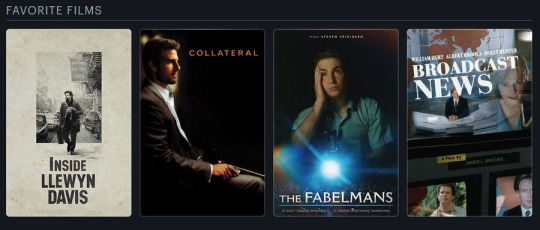
Inside Llewyn Davis (2013) dir. Joel and Ethan Coen
My favourite film of all time is the gloomy odyssey of New York folk musician, Llewyn Davis, directed by the ever brilliant Jewish brothers, Joel and Ethan Coen.
I talk about the Coens a lot as filmmakers whose work is quintessentially Jewish across their entire filmography. Most people understandably point to A Serious Man as the clearest example of Jewishness in their work (one of the only films in which Jewishness is explicitly part of the text). That being said, however, a broad attitude of posing moral and existential questions without attempting to provide answers is present in all of their work. This attitude is a fundamentally Jewish approach to life's mysteries, and in the work of the Coens, is often misidentified as nihilism.
Inside Llewyn Davis, aside from being one of the most beautifully shot, written and acted films I've ever seen, with an all-time great folk soundtrack, is a film that asks terrifying existential questions:
Is it possible to make authentic art in a commercial world?
Is it possible to be a better person when everyone keeps telling you how awful you are?
Is it possible to escape this cycle I've trapped myself in?
No answers. Just questions. Live with it.
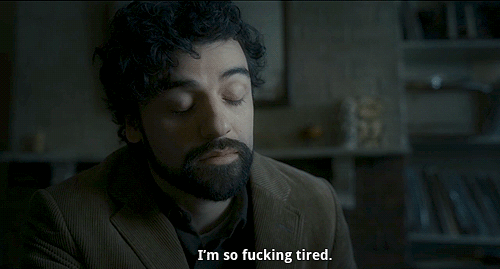
Collateral (2004) dir. Michael Mann
Michael Mann is a director that not a lot of people know is Jewish. You wouldn't think it looking at his movies, but if you pay attention to how he ends nearly all of his stories, the same uncertainty principle which fuels the Coen brothers seems to haunt Mann, too. Nearly all of his films end with a man, who has just done something to irrevocably change his world, walking off into the distance, leaving only a question: where the hell do I go from here?
Collateral is in many ways typical of what Michael Mann does. Two men, at odds with one another, wreak havok trying to overcome each other in an environment defined by a dramatically heightened level of realism. What sets this film apart from the rest of Mann's oevre is the way its protagonist, Max (Jamie Foxx), has to adopt the persona of the antagonist, Vincent (Tom Cruise giving his very best performance), in order to escape his situation. Collateral is a film about understanding the philosophy of your enemy and determining how much of it is bullshit.
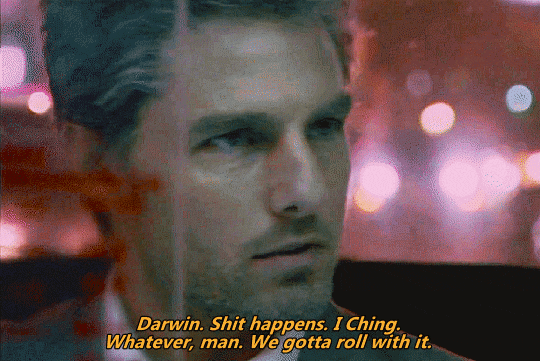
The Fabelmans (2022) dir. Steven Spielberg
I know it's cliche to say so, but Steven Spielberg is far and away my favourite director of all time. What is more controversial about my love for the guy is that I don't think he has a single low period in his career. I am a particular defender of his 21st century output - Catch Me If You Can, Lincoln, Bridge of Spies, The Post and West Side Story are all masterpieces in my book - and I really do feel that The Fabelmans is the pinnacle of his entire filmography.
A film which many have mistaken as overly soppy and sentimental, is actually a tangle of Freudian trauma and pessimism about the relationship between art and identity. The Fabelmans presents Spielberg's incredibly dark and complicated relationship with his family, his own Jewishness and his use of his talents as a filmmaker to reckon with those things. He weaponises his signiture warm, glowing, nostalgic side to frame more upsettingly the most upsetting parts of his upbringing. For Spielberg, cinema is a coping mechanism that has ripped his personal life apart, and it's truly remarkable that he is self-aware enough to admit that in front of the world.

Broadcast News (1987) dir. James L. Brooks
James L. Brooks doesn't have the best track record as a director, but when you make something like Broadcast News, it doesn't really matter what you do next because unless you're some kind of miracle worker, there's no way to top something this good.
Stories about journalists are like crack to me. I'm one of those weirdos who unironically loves Sorkin's The Newsroom; Spotlight is a comfort movie for me! Any story featuring journalists who are really great at their jobs, waxing poetic about the fourth estate, is going to work wonders for me. Add to that one of the best romantic dramedy dynamics in cinema history, and you have a recipe for the perfect Dan movie.
One of the most miraculous things about Broadcast News is the trio of performers at its centre, particularly Holly Hunter, who for my money is maybe the greatest ever living screen actor. The way she plays the burden of intelligence in conflict with a desire for connection is almost upsettingly brilliant, especially given the fact that this was her first big starring role. I really do believe that Brooks' screenplay for this film is one of the best ever written, with some of the most unflinchingly real, but still delightfully funny characters put to screen.

So, there we are. I guess you could see this as a 'four movies to get to know me' kind of thing. Coincidentally (or not, who can say), all four of these films are by Jewish directors, and all four of them feel distinctly Jewish to me in the ways they approach their themes and ideas. Beyond that, though, these are all films that make me feel a deep connection to their characters and the worlds they imagine.
What are your Four Favourites, and what do they say about you?
#blusforjews#blu ray#blu ray collector#film#cinema#jews in film#jewishness#jewishness in film#fuck cinemasins#film tumblr#cinephile#letterboxd#inside llewyn davis#the coen brothers#collateral#michael mann#the fabelmans#steven spielberg#broadcast news#james l. brooks#four favorites#four favourites#oscar isaac#holly hunter#tom cruise
4 notes
·
View notes
Text
Welcome to Blus for Jews!
My name is Dan and I've loved film ardently my whole life. It's only in the last five or six years though that I have made a serious effort to engage with the medium in a considered way, and only since I started a physical film collection that I have become confident enough in my love and knowledge of film to think of myself as a cinephile.
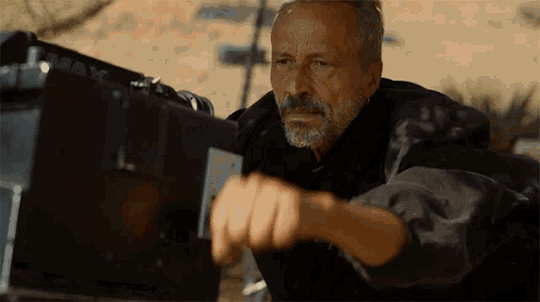
My Jewishness is one of the most important lenses through which I experience the world and, by extension, film. This blog is a space for me to process my thoughts and feelings about my film journey, but also one where I can highlight Jewishness in film - an industry with a lot of Jewish talent behind the camera, but one that shies away from putting Jewishness on screen.
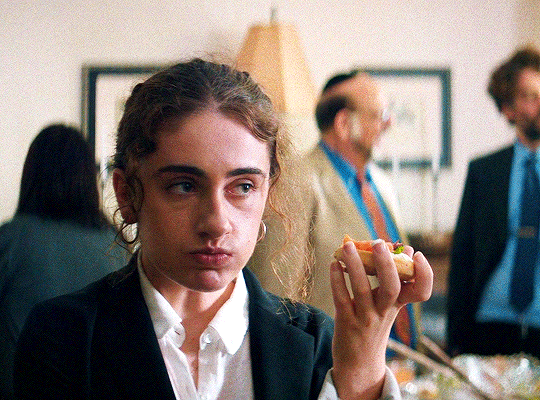
I have used, and to an extent continue to use, Instagram for this kind of creative outlet, but the platform is not particularly well set up for the kind of extended pondering I want to do here.
This is a space for reckoning with how films make us feel, and for asking questions - no answers necessary.
Thank you for joining me.
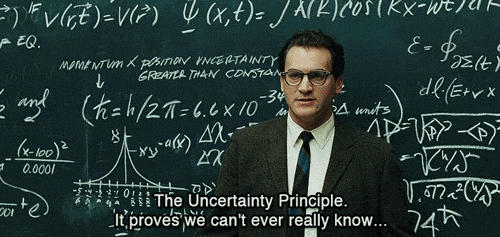
#blusforjews#blu ray#blu ray collector#film#cinema#jews in film#jewishness#jewishness in film#fuck cinemasins#film tumblr#cinephile
1 note
·
View note